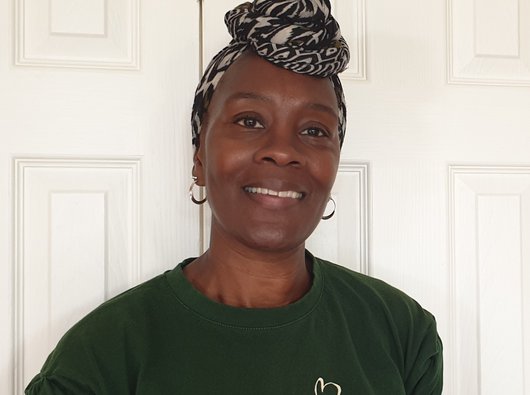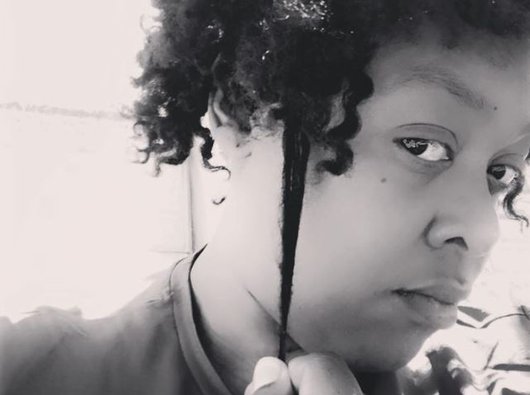Hair loss
Coping with hair loss is often one of the biggest worries when starting treatment for blood cancer. Losing your hair can change how you feel about yourself, and it’s normal to seek extra emotional and practical support during this time.
What causes hair loss?
Many treatments for blood cancer have the potential to cause hair loss, such as chemotherapy, targeted therapies or radiotherapy. These treatments are designed to kill fast-growing cells such as cancer cells. However, there are other cells in the body that also grow quickly including the cells that produce hair. These get killed too, but they can recover, meaning that your hair will usually grow back after your treatment ends.
Often people think that if they have cancer treatment they will definitely lose their hair, but not all cancer drugs have hair loss as a side effect, so check with your treatment team if you're not sure.
What should I know before starting treatment?
It can be reassuring to understand the impacts of hair loss before starting treatment. This will help you feel more prepared and in control when it starts.
- Many people do get hair loss as a side effect, but the level of hair loss can vary depending on the treatment you have and how you as a person react to it.
- Hair loss usually begins a few weeks after starting treatment and it can be gradual or come out in clumps.
- Hair loss can affect your eyelashes and eyebrows too.
- Hair loss can be an emotional experience, changing the relationship you have with your body image. It's worth being aware that you might find it difficult or shocking at first, but this will likely pass.
- For some people, hair is an expression of identity, whether personal, cultural or even political. This can make losing hair even more upsetting.
- Other people may react to your changed appearance and ask questions about your treatment. Sometimes people can be surprised by your hair loss and find it hard to cover this up. This can be difficult, even when you know they don't mean any harm.
- In most cases, hair will begin to grow back several months after the treatment has finished. Be gentle with your new hair and avoid using treatments with harsh chemicals while it is still regrowing.
Preparing other people for your hair loss
Telling people that you might lose your hair before it happens can help. When people are prepared, they often react in a better way.
Telling children about hair loss in advance makes it easier for them to adjust. Letting them touch your head or ask about the hair loss might also help, as they realise it's normal and not something to feel bad about.
Caring for Afro-textured hair
We have written this section because we know that Afro-textured hair has its own unique needs, which benefit from more tailored information. But the rest of the information on this page is also inclusive and relevant to everyone.
Curly hair is more fragile and prone to breaking than straight hair, because of the way it is formed. Very tightly-coiled hair, such as Afro-textured hair, is even more delicate. So during cancer treatment, you might want to change how you treat and wear your hair.
During cancer treatment your scalp can become very sensitive, itchy and sore. Some protective styles like braids, wigs or weaves can add extra stress to the scalp and leave it feeling quite painful. Therefore, it's best to remove any braids, weaves or extensions before treatment starts.
Protective hairstyles can also put your hair more at risk of breaking at the time when you put them in our take them out, so avoid doing this during your treatment.
If you use hair products or relaxers, these can also make hair weaker and more prone to damage, so you might want to avoid any strong products and look for more gentle ones. You should also avoid using heat to style your hair during treatment. If you want to relax your hair again after treatment, wait until your hair has grown back at least a few inches.
Moisturising Afro-textured hair is still important to keep your hair healthy, and you can use light lotions or oils, but make sure to use gentle products and not harsh chemicals or heavy oils.
Maintaining the practice of covering your hair at night with satin-lined bonnets and headwraps will also be beneficial for protecting your hair and soothing your scalp.
Make sure you tell your usual hairdresser about your cancer treatment. They may have supported other people with hair loss and be able to give you advice and help with caring for your hair.
"Hair is part of our identity, so to lose it, you lose so much - your control and choices over how you look."
Yvonne, diagnosed with AML in 2018.
We have more information about experiences of blood cancer for people in the Black community.

How to cope with hair loss
There are many practical ways to manage hair loss so that you feel more comfortable and confident.
- Wearing a wig. Some people choose to wear a wig to give them greater confidence about their visual appearance. Wearing a wig might make you feel more like yourself and lessen the chance of other people asking questions. If this is something you are interested in, ask your healthcare team before you start treatment, as it is easier to match a wig to your hair colour and texture before experiencing hair loss.
- Hairpieces. Instead of a wig, you can get fringes or hairpieces that attach to a hat or other headwear.
- Wearing a headscarf or other headwear. Many people prefer headwear like a hat, scarf, head wrap or bandana. You might want to choose these in advance so you are ready, and you don't need to rush to find one when the hair loss starts. These can help protect your scalp, and you can get brightly coloured and patterned ones to wear more like a fashion accessory.
- Embrace your hair loss. Just allowing your hair to fall out and being bald is another option. Many people find this the most comfortable option, and find confidence in embracing their baldness. If you choose this, make sure you are still protecting your scalp from the sun and other harsh elements.
- Cut your hair. People often say that cutting their hair short before if falls out gives them more of a sense of control over what's happening. It can also make the change feel more gradual, and easier to come to terms with. Some people shave their heads, rather than waiting for hair to fall out.
- Use gentle products when washing your hair during treatment. Handle it gently and avoid any heavy styling with chemical products or heat such as straighteners.
- Seek support for the emotional effects of hair loss. Talking to a friend or family member about it can help, or you might want to talk to your nurse about it. Be kind to yourself, and don't be afraid to open up to someone if your emotions are overwhelming. You aren't being silly, and how you feel about your appearance can matter a lot.
- Connect with others. Understanding that others have experienced the same challenges and emotions as you can help you feel more positive and hopeful about your treatment.
However you choose to handle hair loss, there are lots of people sharing their tips and how they felt in our online forum.
How to get a wig
Your hospital will have a chosen wig supplier, where you can get an NHS wig. NHS wigs are man-made (synthetic) and they are free if you are an inpatient or if you get certain benefits. If you want a human hair wig, or a wig that isn't included in the NHS range at your particular hospital's supplier, you can pay for a wig privately.
If you already have an NHS wig, you can usually get a new one after a certain amount of time, so do ask if you want to change yours. The NHS has more information about wigs.
Finding an Afro-textured wig
Unfortunately, many people still experience barriers or issues accessing an Afro-textured wig, although the NHS is working hard to do better. Here is some key information and sources that we hope are helpful:
- Any wig provider working with the NHS should have a range that caters for all types of hair. If you have any issues with the wig provider or don't feel supported, tell your nurse or someone at the hospital.
- You might want to pay for a wig privately, as this might offer you a better wig for your hair and style. Ask your usual hairdresser or wig shop if they can recommend anywhere that provides wigs for hair loss.
- The charity Cancer Hair Care offers advice and support on hair loss, and has lots of resources and guidance specifically about Afro-textured hair.
- Cancer Hair Care also have a helpful video all about hair loss, wigs and headwear for people with Afro-textured hair.
- Gina Knight Wig Design are specialists in textured wigs for Black women with hair loss, although their wigs are quite expensive. They are created by wig designer Gina Knight, who has had hair loss herself since 2012.
If you feel you've had a less good experience at the NHS because of your hair type, you can give feedback to your hospital. In England you can do this through the Patient Advice and Liaison Service (PALS), in Scotland it’s the Patient Advice and Support Service (PASS), in Wales it’s the Community Health Councils (CHCs), and in Northern Ireland follow your hospital's complaints procedure.
"When I started treatment, one of my first questions was would I lose my hair straight away? I’m Afro-Caribbean, and my hair was really thick."
Simone, diagnosed with myeloma in 2018.
Read Simone's story about how she coped with hair loss during blood cancer treatment.

Getting help from your hospital team
Talk to a member of your hospital team before starting treatment so that you know what to expect. They are there to support you and guide you through your treatment, as they would have done for others in your position.
Some questions to ask:
- Is my treatment expected to cause hair loss?
- Can you predict when this will start?
- Should I expect partial or complete hair loss?
- How should I look after my hair and scalp during this period?
- When will it grow back?
- Do you have any resources to help me cope with this change?
- Are there any support groups for hair loss in my area?
Places to get more support
There are organisations that help people experiencing cancer-related hair loss. They aim to make you feel more confident, less alone, and give you back that sense of being ‘you’:
Cancer Hair Care (LGBTQ+ friendly)
You can also talk to us or talk to other people with blood cancer on our online forum.

Talk to other people affected by blood cancer
Hear from and connect with people who understand.
